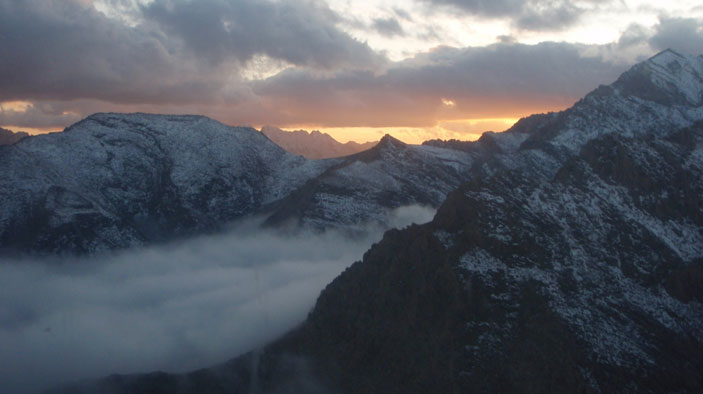Nepal Tech Startup Poised for NASA’s International Space Apps Challenge
April 15, 2013
Space enthusiasts, tech wizards, and citizen scientists the world over are prepping for the second International Space Apps Challenge, a 48-hour hackathon led by NASA April 20-21. Their mission: use images from space, open-source data, and earthly know-how to make apps that address climate change and improve life on earth—and beyond.
Two thousand enthusiasts at last year’s event whipped up more than 100 open-source solutions to facilitate clean energy development, educate novice gardeners, and crowd-source environmental data, among other breakthroughs.
While this year’s hackathon includes 75 cities representing 41 countries, with most hackers accessing a universe of data and images, a unique effort will launch from the International Centre for Integrated Mountain Development (ICIMOD) in Kathmandu, Nepal.

YoungInnovations, a Nepali tech startup, will devise its climate change solution using only data from SERVIR, a web-based geospatial platform established in 2004 by NASA, the U.S. Agency for International Development (USAID), and others, for sharing, integrating, and mapping climate data from satellite imagery.
ICIMOD is an intergovernmental knowledge sharing center that addresses the climate change and environment issues of eight member countries—Afghanistan, Bangladesh, Bhutan, China, India, Myanmar, Nepal, and Pakistan—and the global mountain community. As the Himalaya regional hub for the SERVIR project, ICIMOD is providing YoungInnovations with data, guidance, and mentorship during the challenge.
YoungInnovations and other registrants will be tackling software development, open hardware, and data visualization. Among the 50 specially curated challenges put forth this year: create an app that integrates wind, solar, and geothermal energy data to show where they would combine for greatest effect; explore the history of Earth Day using environmental data since 1970; and explore the impacts of atmospheric changes on the health, infrastructure, and society in urban areas.
Through the SERVIR project, ICIMOD is turning data from space, air and ground sources into useable products so governments and organizations in the Himalaya Hindu-Kush region can make more informed decisions about managing environmental resources. DAI is helping NASA and USAID create awareness and demand for these products.
SERVIR-Himalaya, for example, has introduced products to measure snow coverage and determine how rapidly snow will melt—factors that dictate how much water runs off mountain snow pack and into the rivers below. This directly affects water availability and flooding potential downstream in some of the most populated regions in the world.
SERVIR-Himalaya also developed a mobile application for sending and receiving important environmental information, such as the location of wildfires in Nepal, via cell phone. These apps are vital to people in remote areas where mobile platforms are the primary means of accessing information.
This type of innovative thinking is typical at the International Space Apps Challenge. Among last year’s winners:
- People’s Choice Award—Bit Harvester, Kenya: For an app that allows energy companies to monitor their remotely located windmills, which are difficult to manage but located where energy is needed most.
- Most Innovative—Strange Desk, England: A mobile app for a global legion of “strangenauts” who upload curious observations—weird weather bursts, a deceased insect, unusual foliage—that are time- and location-stamped and rated on a weirdness scale; this social dataset is then matched with satellite observations in ways useful for researchers.
- Most Disruptive—The Pineapple Project, Dominican Republic: Exploring the potential of unused land for growing fruit, vegetables, and other crops, an app that considers location, climate, and growing requirements to provide potential farmers recommendations on what to plant.
This year’s event promises to generate many more terrific and original ideas. Follow the action here or via Twitter and Facebook. For more information, contact Stacy Whittle at [email protected].
RELATED CONTENT:
USAID Business Egypt Project Supports the Global ClimaTech Run 2022
The U.S. Agency for International Development-funded Business Egypt project, in partnership with Egypt’s Ministry of International Cooperation, recently launched the ClimaTech Run global competition, which invites tech entrepreneurs and digital artists with innovative ideas on climate action to compete for an opportunity to present their work at COP27.
Read More